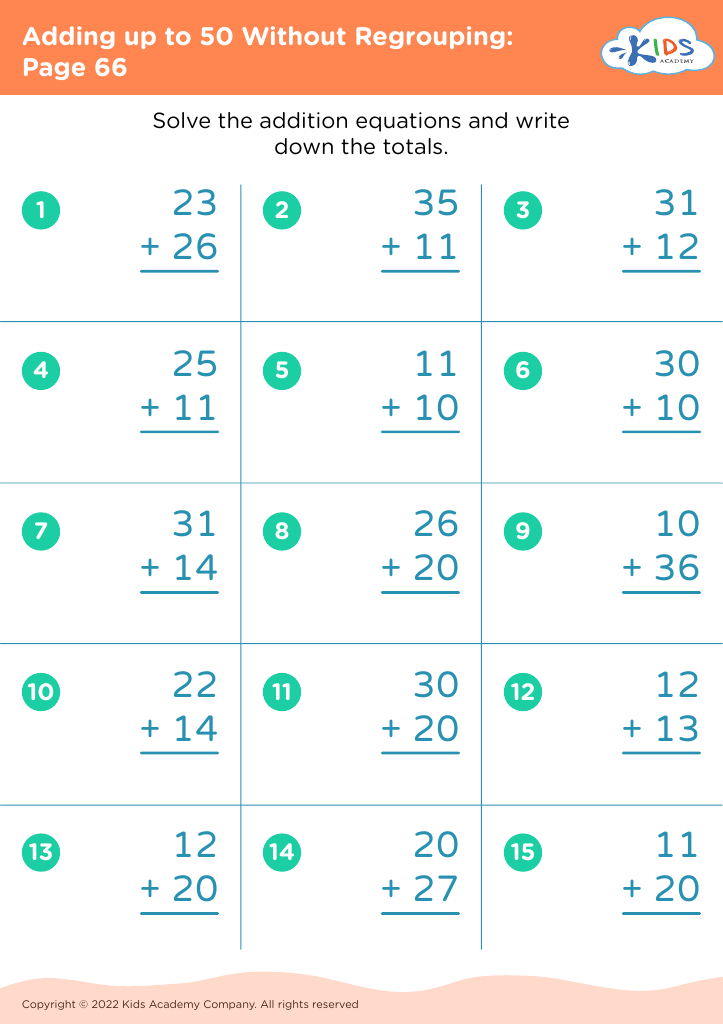Practice division Math Worksheets for Ages 3-8
3 filtered results
-
From - To
Elevate your child's math skills with our engaging division practice worksheets, specifically designed for ages 3-8! These age-appropriate resources introduce foundational division concepts in a fun and interactive way, helping young learners build confidence in their math abilities. Our worksheets feature colorful illustrations and playful activities, making learning division enjoyable. From simple division problems to real-world applications, these materials support critical thinking and problem-solving skills. Ideal for at-home practice or classroom use, our division worksheets ensure your little one develops a strong mathematical foundation. Start exploring and watch your child's division skills flourish today!
Division is a foundational mathematical concept that forms the basis for more advanced math skills encountered later in life. For children aged 3-8, engaging in division practice introduces them to the idea of sharing and grouping, fostering essential problem-solving abilities. Early exposure to division, even in simple forms like sharing equally, nurtures a child's understanding of relationships between numbers and quantities.
Parents and teachers should prioritize division practice because it aids in developing critical thinking skills at an early age. By dissecting problems into manageable parts, children learn to approach challenges methodically, enhancing their overall mental agility. Additionally, division practice promotes early numeracy, which is crucial for future mathematical learning, as it intertwines with addition and subtraction concepts.
Moreover, as children practice division, they gain confidence in their mathematical abilities, reducing anxiety related to math as they grow. This confidence not only improves academic performance but also encourages a positive attitude toward learning.
Finally, reinforcing division skills in a fun, engaging manner—through games or practical activities—stimulates interest in math and fosters a lifelong love for learning. Together, parents and teachers can create a nurturing environment that recognizes the significance of division for cognitive development during these formative years.












.jpg)










